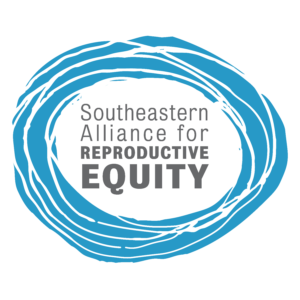Greetings Community,
As 2013 comes to a close, on behalf of the Board and Staff of SPARK, I want to thank you for recognizing the importance of investing in our work.
Your unwavering support empowers SPARK to ensure the voices of women of color, LGBTQQ youth, and young families are ever present at key decision making tables, fighting for healthcare and our rights to create family in the ways we see fit.
Let me share with you our accomplishments in 2013:
-
SPARK announced new Executive Director Malika Redmond, M.A. in March. Malika Redmond is a Black feminist researcher, writer, and human rights advocate bringing 15 years of leadership experience both nationally and internationally. Full bio available at www.sparkrj.org.
-
The Mama’s Day and Papa’s Day campaigns were e-campaigns highlighting local African-American mothers and fathers whose work and philosophy embrace a reproductive justice framework. SPARK wrote a total of 6 interviews and two blogs shared nationally through both social media, receiving over 3000 Facebook hits, and posts on 4 different blog sites.
-
SPARK launched a monthly Twitter conversation series on sexual health, reproductive justice, and popular culture. Thus far, we have partnered with over 15 organizations and 30 independent twitter followers logging in to take part in our online conversation. This initiative has bolstered SPARK’s twitter following by 39%, growing our following from 668 to 934 followers in just 6 months.
-
This summer SPARK partnered with StoryCorps and Atlanta, GA, community radio station WRFG 89.3FM for our 3rd annual FYRE Media Justice Camp. We provided scholarships to 7 LGBTQQ youth of color student leaders from the south including Tennessee, North Carolina, Alabama, and Georgia for 4 days and 3 nights to learn about reproductive justice and radio broadcasting in order to create their own online multi-segment podcast series on current reproductive and racial justice issues. Youth had dinner and conversations with nationally recognized feminists of color scholars and activists Dázon Dixon Diallo, MPH, CEO of SisterLove, Inc., and Crunk Feminist Collective bloggers Susana Morris, PhD and Eesha Pandit, M.A. on how to effectively use multimedia to share their work. Click here to check out the first segment of the series!
-
Executive Director Malika Redmond along with the National Domestic Workers Alliance–Atlanta Chapter held a press conference to launch a grassroots campaign for Medicaid expansion (outlined in the historic Affordable Care Act) in Georgia at the State Capitol this fall. Along with the press conference, 50 people gathered at the Georgia Citizens Coalition on Hunger for our 1st town hall meeting and 2 talks were held for students at Georgia State University on the Affordable Care Act and Medicaid expansion.
-
In the fall, the Arcus Foundation announced Executive Director Malika Redmond among 10 emerging leaders to participate in their 1st executive leadership training program furnished with one-on-one coaching with a top level executive, retreat, management tools, and one year grant.
-
SPARK ushered in the holiday season with our end-of-the year fundraiser and first ever the “Winter Flame” bringing together supporters, from across the country to Atlanta, GA, to celebrate reproductive justice in the south. The event garnered support from Atlanta city Councilman Kwanza Hall, the Old Fourth Ward Restaurants and Neighborhood Associations, Janke Glass Studio, and countless others. It was highlighted in the Atlanta Journal Constitution and Creative Loafing’s “Top 5″ events in Atlanta. Check out the night’s highlights!
Remember, there is still time to give your 2013 gift by hitting the “Donate” button. You can deepen your impact by joining SPARK as a monthly sustainer giving automatic, recurring donations for as little as $10 a month!
SPARK is looking toward the future as we continue to develop youth leadership, move into new office space, gear up to engage in important reproductive justice fight, and launch a voter empowerment campaign in 2014.
Thanks again for welcoming me to SPARK and always standing with us.
Happy Holidays,
Malika A. Redmond, M.A.
Executive Director
Click here to check out the night’s highlights at the “Winter Flame”!









 Right-wing push back on the Affordable Care Act’s expansion of Medicaid and contraceptive coverage,
Right-wing push back on the Affordable Care Act’s expansion of Medicaid and contraceptive coverage,  Jerome Scott, Jerome Scott, Founding Member of Project South, Co-Founder of the League of Revolutionary Black Workers, Veteran, and Father
Jerome Scott, Jerome Scott, Founding Member of Project South, Co-Founder of the League of Revolutionary Black Workers, Veteran, and Father BT is the Founder of Trans(forming), a chapter organization of Female to Male Inc. (FTMI). An activist and advocate for over 25 years, BT works on social justice issues like decriminalization and healthcare access with several communities: Black, trans, working class, homeless, and immigrant people. He fights for trans-inclusive health insurance with Trans Health Advocates Atlanta, and, as a member of the
BT is the Founder of Trans(forming), a chapter organization of Female to Male Inc. (FTMI). An activist and advocate for over 25 years, BT works on social justice issues like decriminalization and healthcare access with several communities: Black, trans, working class, homeless, and immigrant people. He fights for trans-inclusive health insurance with Trans Health Advocates Atlanta, and, as a member of the 





